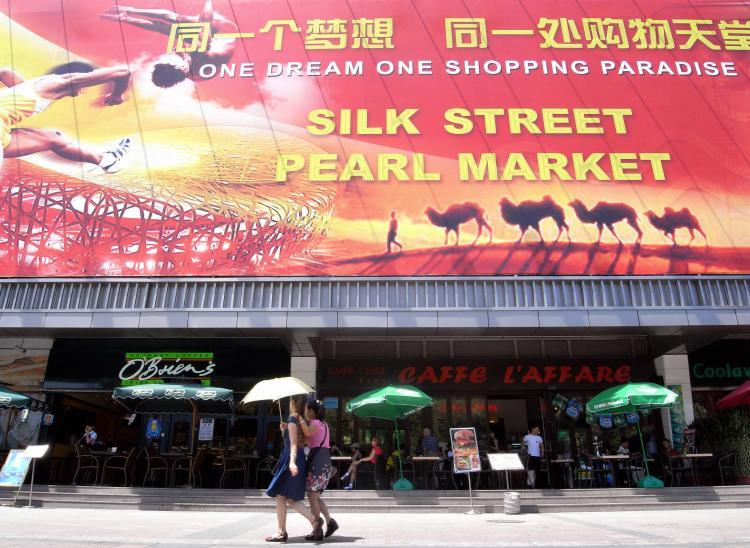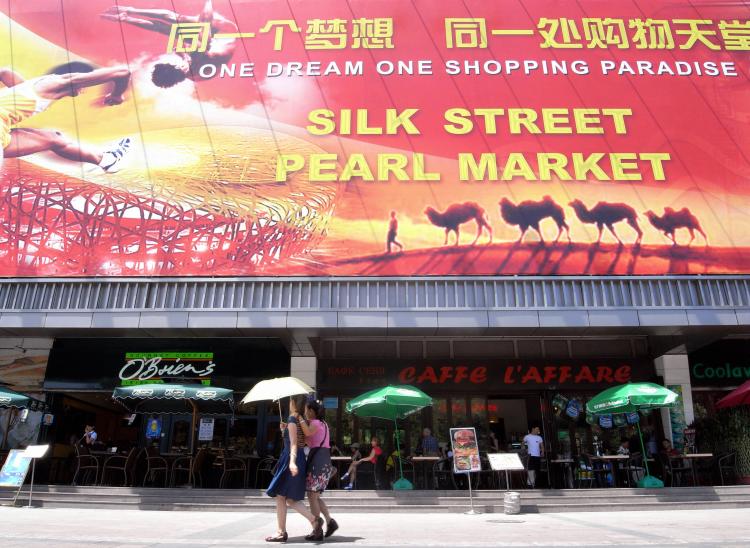WASHINGTON—Seizures by U.S. and Canadian customs agencies revealed that Chinese counterfeit goods have surpassed just luxury items and DVDs. Recent seizures uncovered 74,000 counterfeit Cisco Systems, Inc. high-tech products from China, worth more than $76 million.
Counterfeit Cisco routers, switches, interface cards and other networking hardware could put U.S. companies at risk of infiltration by hackers and criminals, as well as network malfunction. The equipment had been shipped from Shenzhen City, Guangdong Province in Southern China.
“Counterfeit network hardware entering the marketplace raises significant public safety concerns and must be stopped,” said Alice S. Fisher, Assistant U.S. Attorney General in a recent U.S. Attorney’s Office press release.
The investigation into counterfeit goods—codenamed “Operation Cisco Raider”—is a cooperative effort between The U.S. immigration and Customs Enforcement (ICE), U.S. Customs and Border Protection (CBP), the Royal Canadian Mounted Police (RCMP), U.S. Federal Bureau of Investigation (FBI) and the U.S. Attorney’s Offices.
The operation resulted in 36 search warrants. The Justice Department announced ten guilty verdicts and fines totaling $1.7 million.
Earlier this year, the FBI’s Cyber Division handed out a newly unclassified PowerPoint presentation rooting out counterfeit computer and network components. The presentation has since been posted on the Internet by tech blogs.
A press release from the U.S. Attorney’s Office in the Eastern District of Virginia stressed that Cisco “has cooperated with U.S. and Canadian law enforcement authorities and provided exceptional assistance throughout these investigations.”
In Europe, counterfeit computer equipment seizures increased by 62 percent in 2007 over the prior year.
“The likely use of the routers was well understood—and it should be obvious why selling them to a government which intends to monitor its citizens is different from selling them to some company that wants to monitor its employees,” Fallows continued.
Cisco officials have testified during U.S. Senate and other hearings, insisting that it makes “off-the-shelf products” and does not specifically modify them to suit any country. Cisco will not sell products to any country that the U.S. federal government prohibits doing business with. Its only interest is to make the Internet accessible to anyone in the world, Cisco claims.
However, leaked internal documents from China suggest that Cisco was aware of China’s intentions and enthusiastically provided such technology to a repressive regime. The document even makes special mention of its role in silencing Falun Gong and other dissidents.
Rep. Chris Smith (R-NJ) is the author of the Global Online Freedom Act (HR 275), to be voted on before the 2008 Olympics. If it becomes law, the Act will prohibit U.S. companies—such as Yahoo! and Google—from cooperating with repressive regimes. The act is supported by human rights organizations, media advocate Reporters without Borders, the Center for Democracy Technology among other interest groups.
“American high-tech firms have produced the technology and know-how that has led to a modern-day information revolution. Sadly, however, instead of working to allow everyone to benefit from these advancements, these same high-tech firms are colluding with dictators and tyrannical regimes such as China to suppress human rights information and punish pro-democracy advocates,” said Smith in a recent release.
Counterfeit Cisco routers, switches, interface cards and other networking hardware could put U.S. companies at risk of infiltration by hackers and criminals, as well as network malfunction. The equipment had been shipped from Shenzhen City, Guangdong Province in Southern China.
“Counterfeit network hardware entering the marketplace raises significant public safety concerns and must be stopped,” said Alice S. Fisher, Assistant U.S. Attorney General in a recent U.S. Attorney’s Office press release.
The investigation into counterfeit goods—codenamed “Operation Cisco Raider”—is a cooperative effort between The U.S. immigration and Customs Enforcement (ICE), U.S. Customs and Border Protection (CBP), the Royal Canadian Mounted Police (RCMP), U.S. Federal Bureau of Investigation (FBI) and the U.S. Attorney’s Offices.
The operation resulted in 36 search warrants. The Justice Department announced ten guilty verdicts and fines totaling $1.7 million.
Earlier this year, the FBI’s Cyber Division handed out a newly unclassified PowerPoint presentation rooting out counterfeit computer and network components. The presentation has since been posted on the Internet by tech blogs.
Secret Information
In April, University of Illinois Professor Samuel King claimed that counterfeit computer and network parts might be sold by China to gain access to sensitive U.S. military data.
Tech blogs suggest that the FBI and the Department of Defense are worried about such components being placed into their computer and network systems.A press release from the U.S. Attorney’s Office in the Eastern District of Virginia stressed that Cisco “has cooperated with U.S. and Canadian law enforcement authorities and provided exceptional assistance throughout these investigations.”
U.S. and Europe Joining Forces
More than 360,000 counterfeit Cisco, Siemens AG, Royal Philips Electronics N.V. and Intel Corp.-branded computer and networking components—worth around $1.3 billion—were confiscated during 2007, according to a recent joint U.S. and European Union law enforcement press release.
“In terms of overall quantities seized, China remains the main source for counterfeit goods, with almost 60 percent of all articles seized coming from there,” according to a European Commission press release last month.In Europe, counterfeit computer equipment seizures increased by 62 percent in 2007 over the prior year.
Cisco Under Scrutiny
Cisco Systems Inc.’s cozy business relationship with China has been well documented, including its role in supporting China’s Internet self-censorship, widely known around the world as the “Great Firewall.”
“Cisco did a favor to the Chinese government several years ago by selling them the mirroring routers on which the Great Firewall is based, at a time when Chinese authorities could not easily have produced the systems on their own,” said James Fallows from “The Atlantic Monthly” during an interview with Network World Inc.“The likely use of the routers was well understood—and it should be obvious why selling them to a government which intends to monitor its citizens is different from selling them to some company that wants to monitor its employees,” Fallows continued.
Cisco officials have testified during U.S. Senate and other hearings, insisting that it makes “off-the-shelf products” and does not specifically modify them to suit any country. Cisco will not sell products to any country that the U.S. federal government prohibits doing business with. Its only interest is to make the Internet accessible to anyone in the world, Cisco claims.
However, leaked internal documents from China suggest that Cisco was aware of China’s intentions and enthusiastically provided such technology to a repressive regime. The document even makes special mention of its role in silencing Falun Gong and other dissidents.
Rep. Chris Smith (R-NJ) is the author of the Global Online Freedom Act (HR 275), to be voted on before the 2008 Olympics. If it becomes law, the Act will prohibit U.S. companies—such as Yahoo! and Google—from cooperating with repressive regimes. The act is supported by human rights organizations, media advocate Reporters without Borders, the Center for Democracy Technology among other interest groups.
“American high-tech firms have produced the technology and know-how that has led to a modern-day information revolution. Sadly, however, instead of working to allow everyone to benefit from these advancements, these same high-tech firms are colluding with dictators and tyrannical regimes such as China to suppress human rights information and punish pro-democracy advocates,” said Smith in a recent release.





